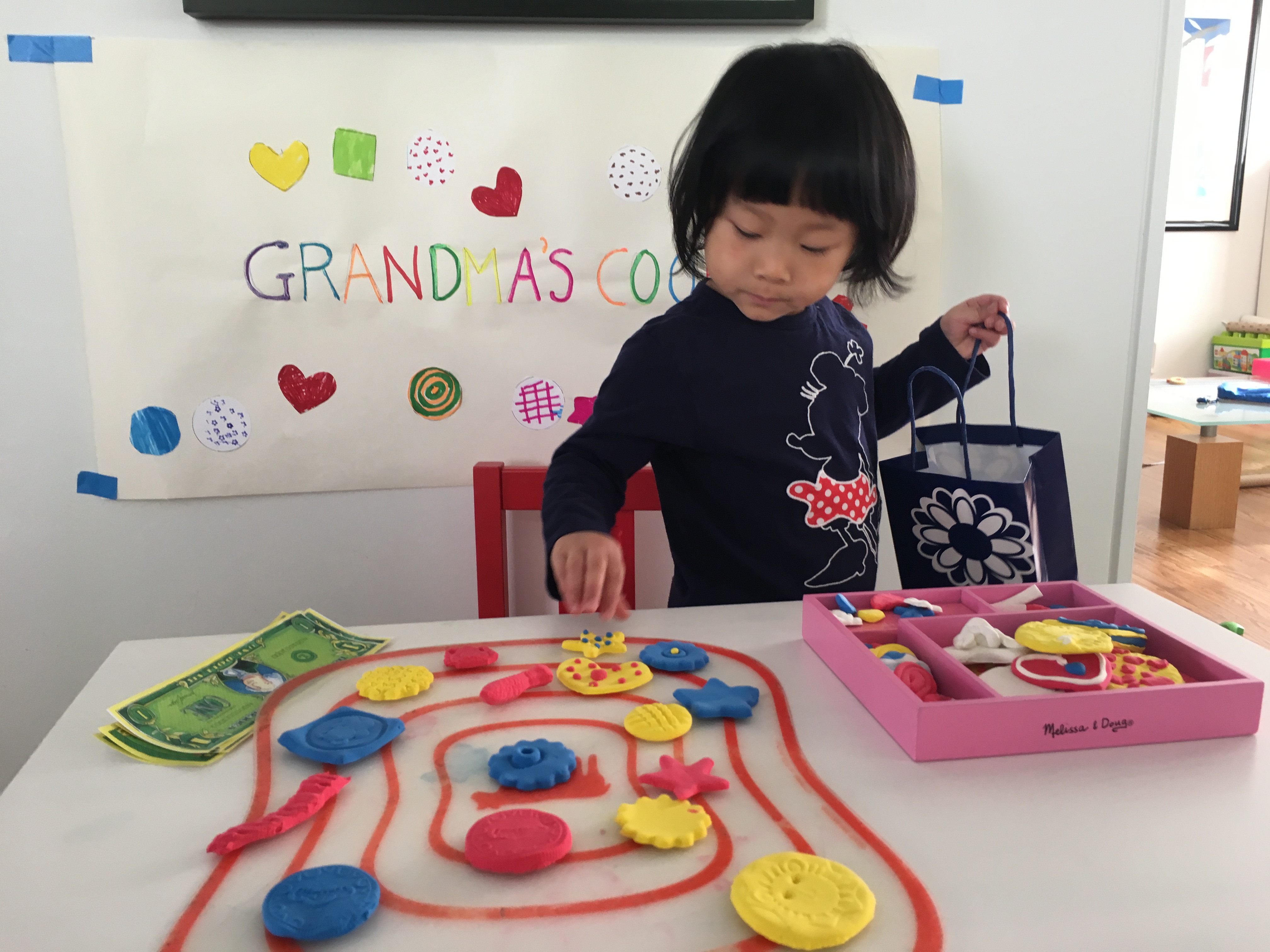How to Play Restaurant–the Best Game, Ever
Almost every kid has played restaurant at some time or other. You set up tables and chairs, your friends come, and you dish out imaginary food. To turn this idea into the best game, ever, requires a little more time, thought, and adult guidance.
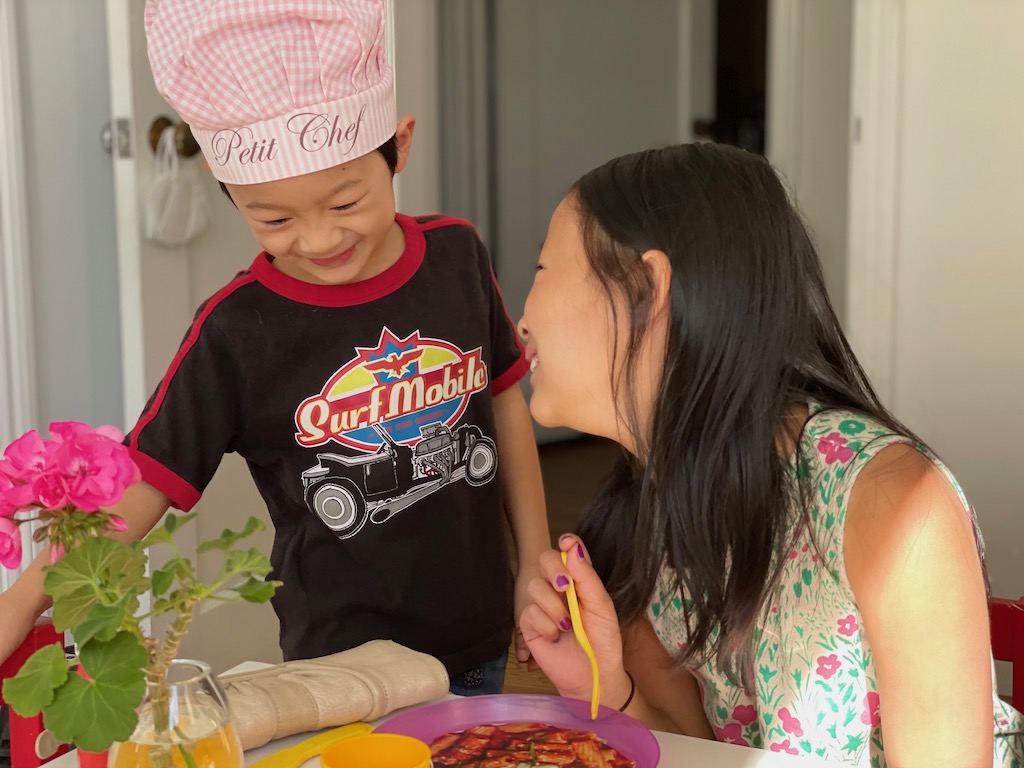
Why this is the Best Game
In this game, kids will enjoy pretend play, but they’ll get a lot more out of it. That’s because you’ll be there to guide and teach them how to:
- Welcome guests to develop social skills
- Learn to read menu items
- Take orders to develop organizational skills
- Add up an order to present a bill
- Learn equivalents to give change
- Behave properly in a restaurant setting
Also, this educational game can be improvised to play with what’s at hand, without expensive extras to buy. Also, it can be played by kids of different ages.
For another fun learning game, start a cookie shop.
First, Prepare the Menu
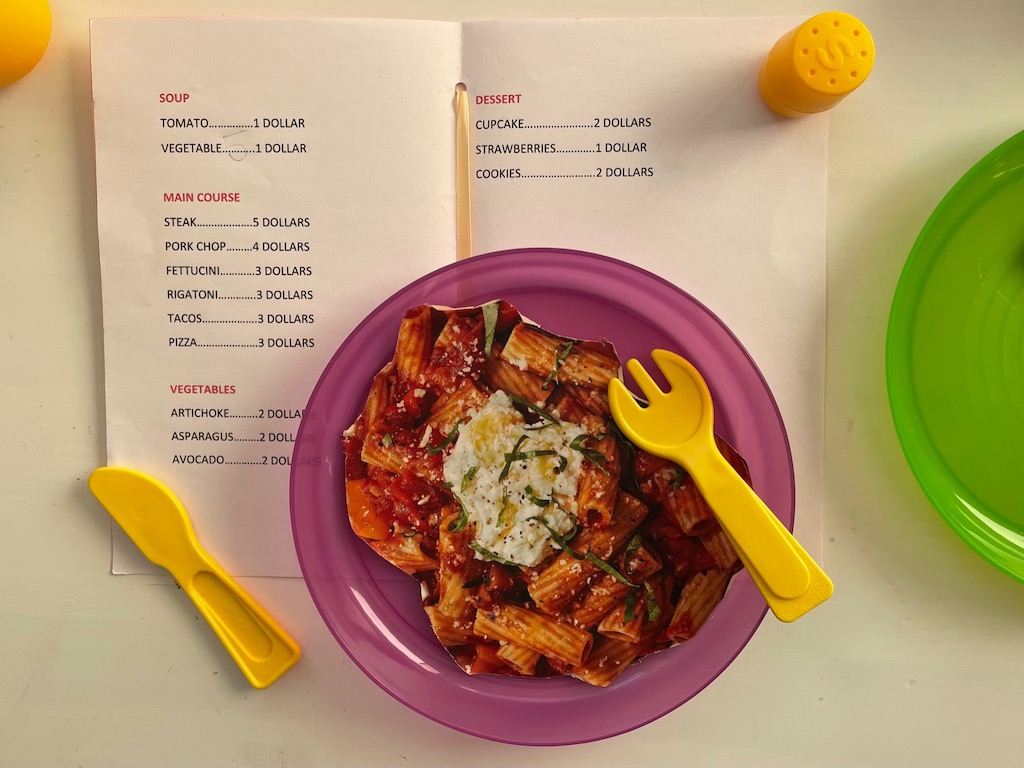
Here’s what you’ll do together with your child to prepare the menu:
- Select magazine images of food or find images online.
- Glue images to lightweight cardboard and cut out the shapes, minus the serving dish.
- Select the name of your restaurant.
- Write out your menu and assign prices–small dollar amounts only.
- Type and print out your menu or hand-write it.
- Now make a corresponding order form, listing the menu items and prices, so a young child can easily check off the items.
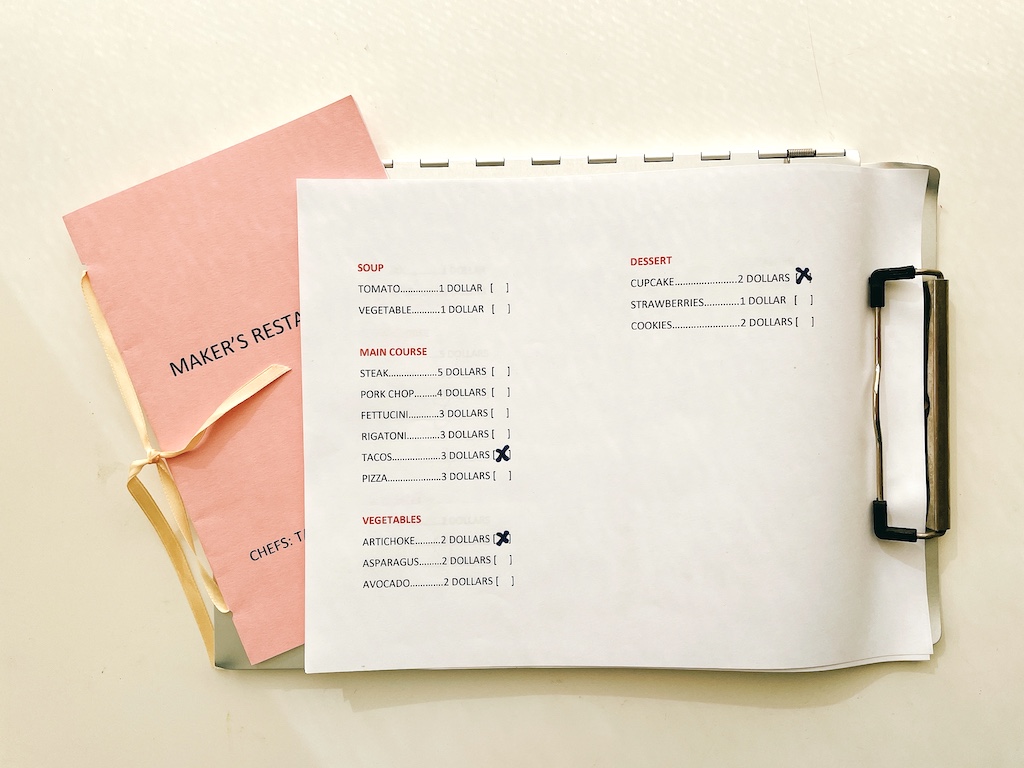
Next, Organize the Food
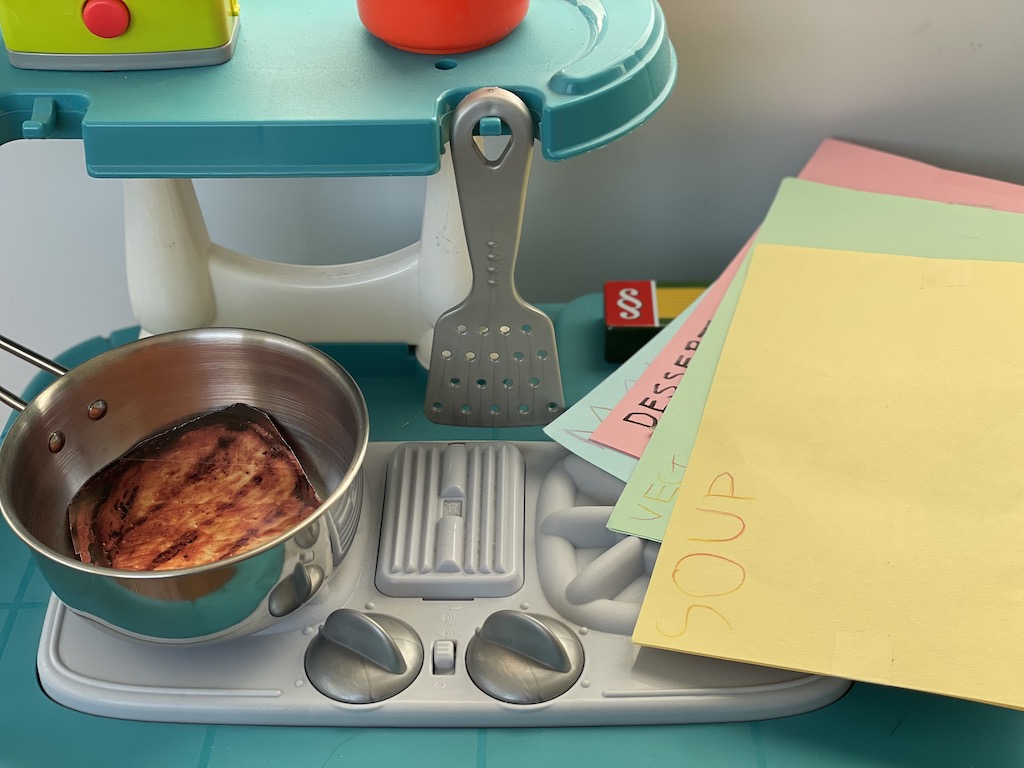
- Make folders for the menu items and label the categories to match your menu. Our folders are just 8 1/2- X 11-inch colored cardstock, folded in half. One for soups, one for main dishes, etc. This teaches kids the value of filing as a method of organization.
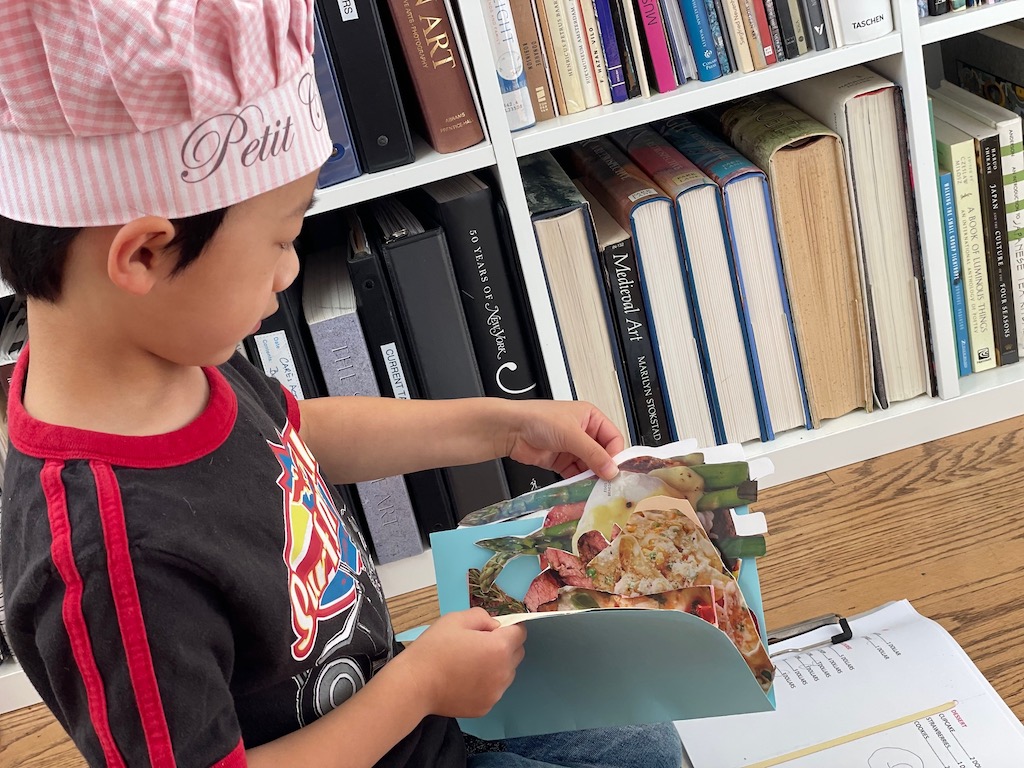
It’s Time to Print Some Money
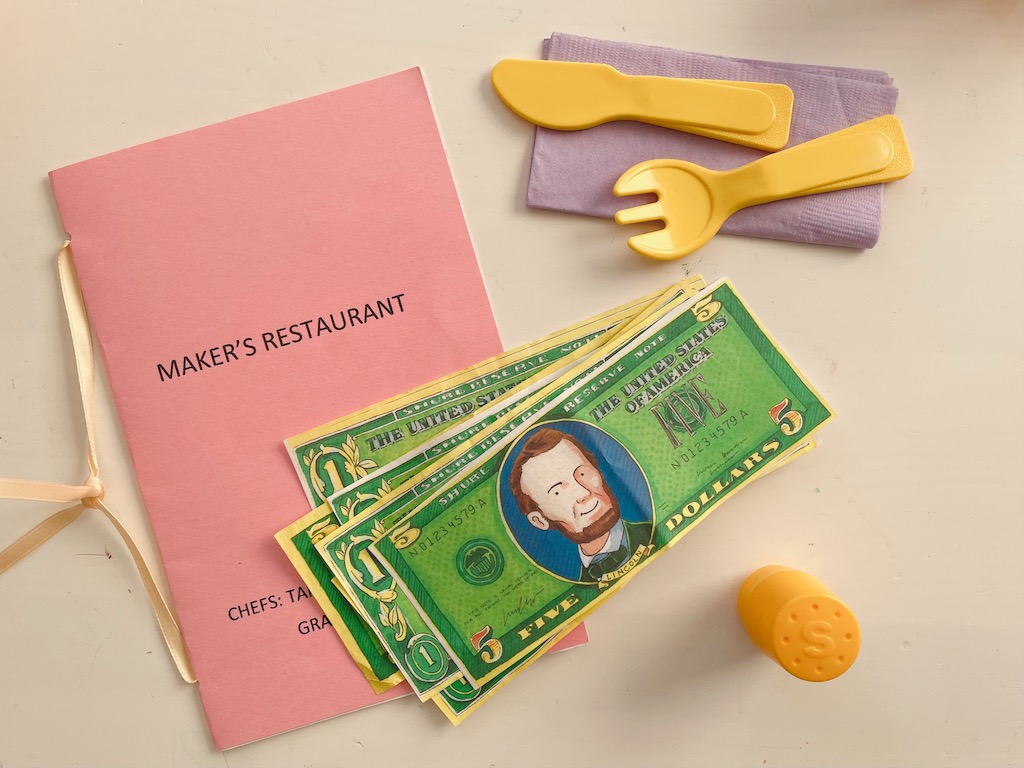
Search “free printable play money” on the Internet. Be sure to print $1, $5, and $10 denominations. That way, you can begin to help a child understand that one $5 bill is the same as five $1 bills, and so forth. You’ll need to have enough cash for the restaurant and the patrons.
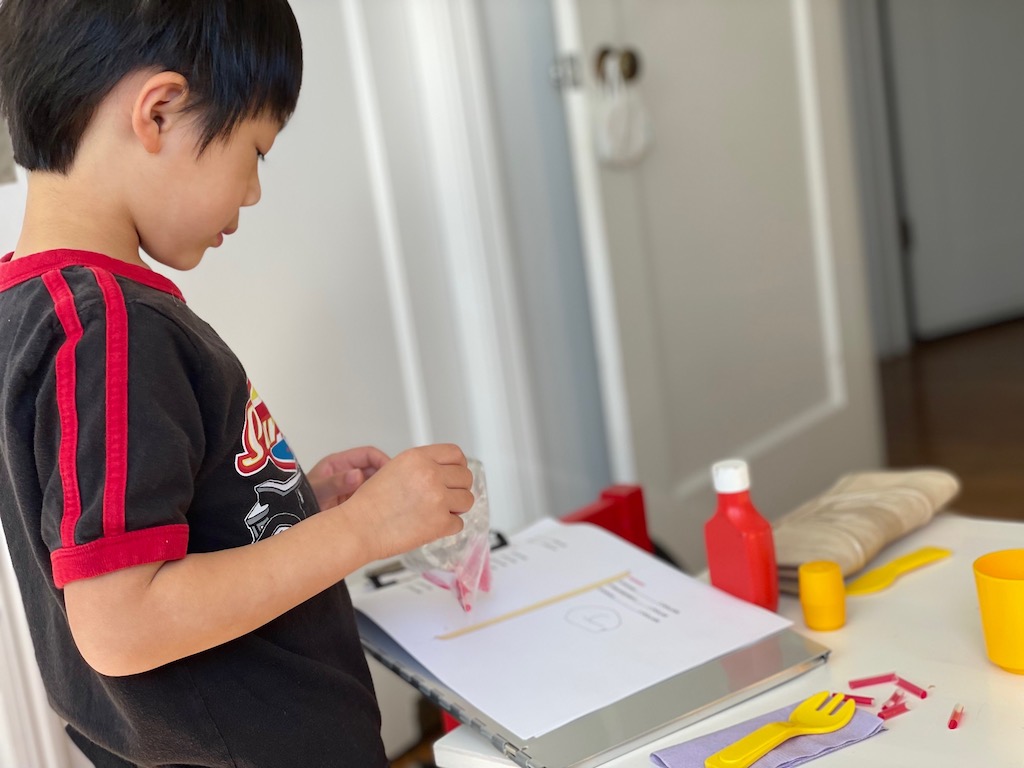
While older children can add the items ordered to present a check at the end of the meal, little ones can use straw segments to do the addition.
So, for example, if the rigatoni is $3, the child will set out three straw snippets and do the same for every item ordered. To tally the total bill, the child simply counts all the straw pieces.
Now, Set up Your Restaurant
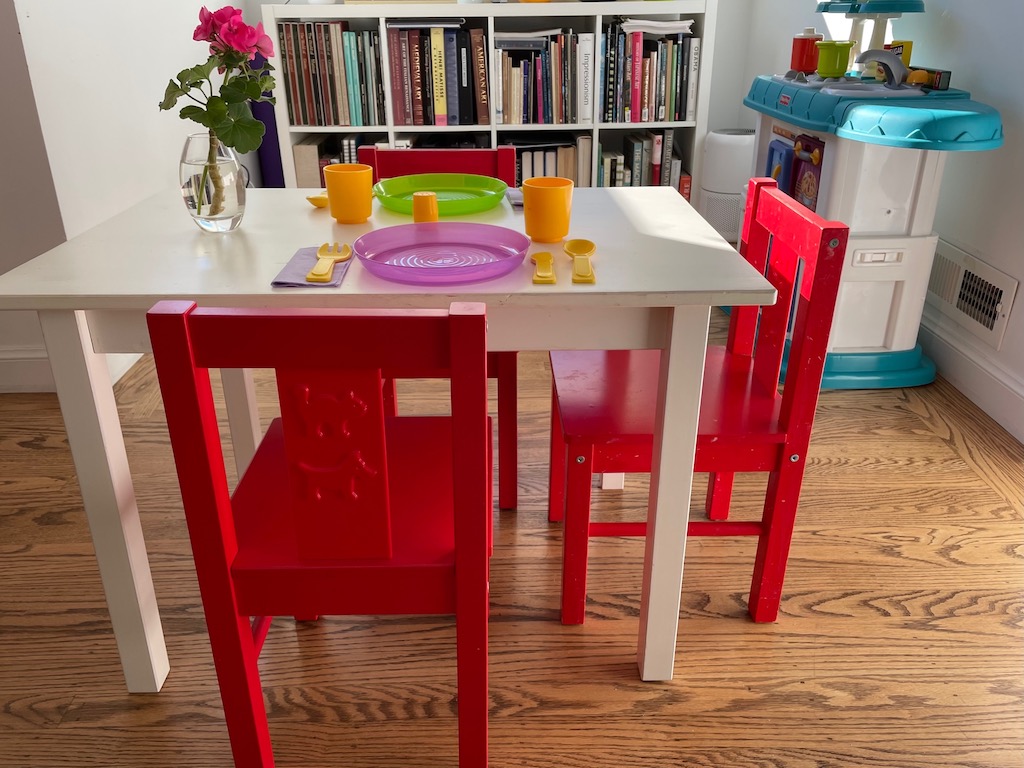
We happen to have everything we need to furnish our restaurant. I bought Miss T a compact kitchen set when she was a toddler. We also have a child-size table and three chairs.
In addition, we have:
- Toy cups, plates and utensils
- Cookware
- Kitchen mitt, apron, and chef’s hat
If you don’t have any of these, just improvise. Use an empty upside-down carton for the stove. Use your real dining table or kitchen table. Set the table with paper plates and throwaway utensils–or use real dishes and flatware.
Set the table correctly and with precision so kids can learn to do the same in real life.
How to Play the Game
If four are playing, you can have two teams: Two customers on one team and a waiter and a chef on the other. Since we were playing with three, the chef did double duty as the waiter.
It’s best if you, as the adult, start as the waiter/chef, so the kids can model behavior.
The kids stroll by, poke their head in the door of the restaurant, where you welcome them and tell them about the restaurant…we make everything on the premises, we use organic ingredients…whatever appeals.
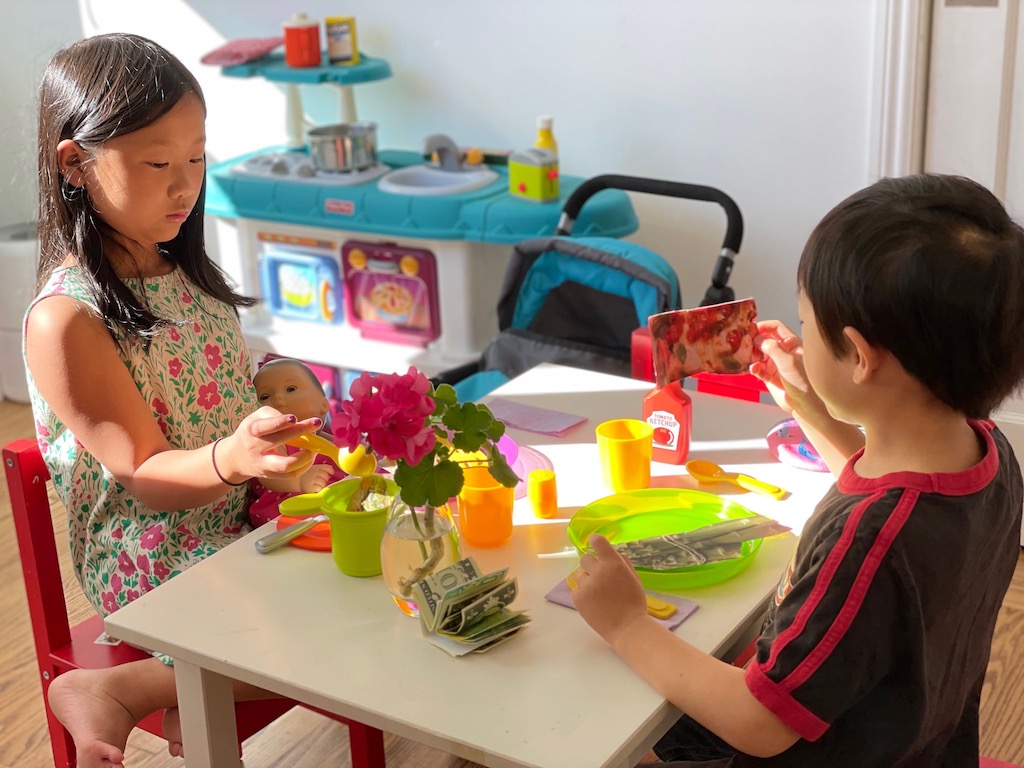
The Waiter/Chef’s Role
You usher the guests in, get them seated, then bring the menus. Next you offer them water.
You inform them of any specials today, then give the diners a chance to make their selections. Next, you come back and take their order, using the order sheet to check off the items ordered.
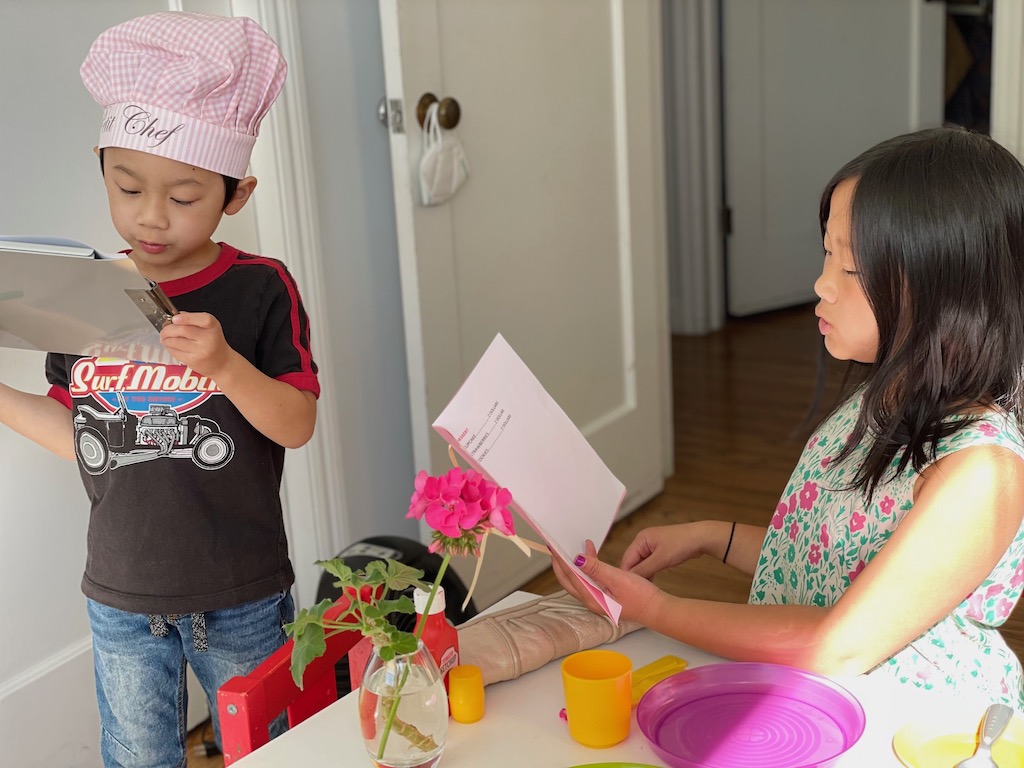
If you printed your food off the internet, you can print more than one picture of a dish. It you cut images from magazines, most of the food on your menu is likely to be one-of-a-kind. If two people ask for the same thing, you might say the dish was so popular we are almost sold out and we have just one left.
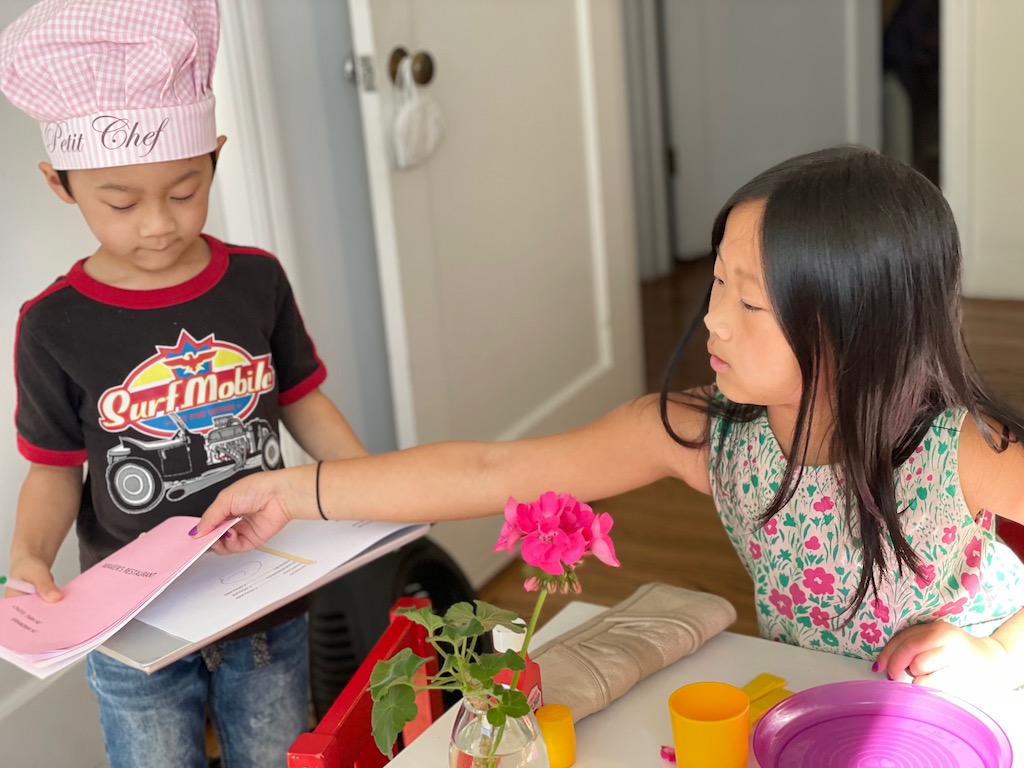
Next, back in the kitchen, you’ll go through the file folders by category to retrieve all the items on the order form. I like to put the food in pots and pans on the stove, pretend to cook, then return with the filled plates and wish my customers bon appétit.
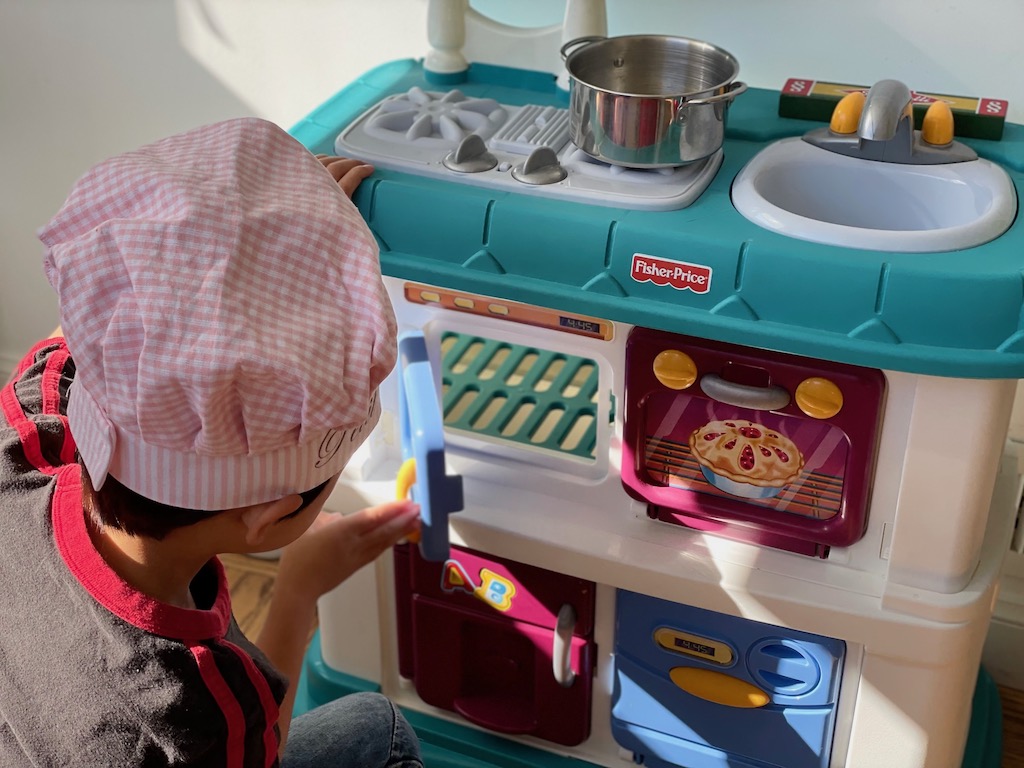
Meanwhile, the patrons eat the food. When they are done, you come by asking if they would like dessert, give them back the menu, take their order, and return with their desserts. Then you add up the order from the order sheet and tell them what they owe. Kids take out their money and using bills of different denominations, pay for their meal.
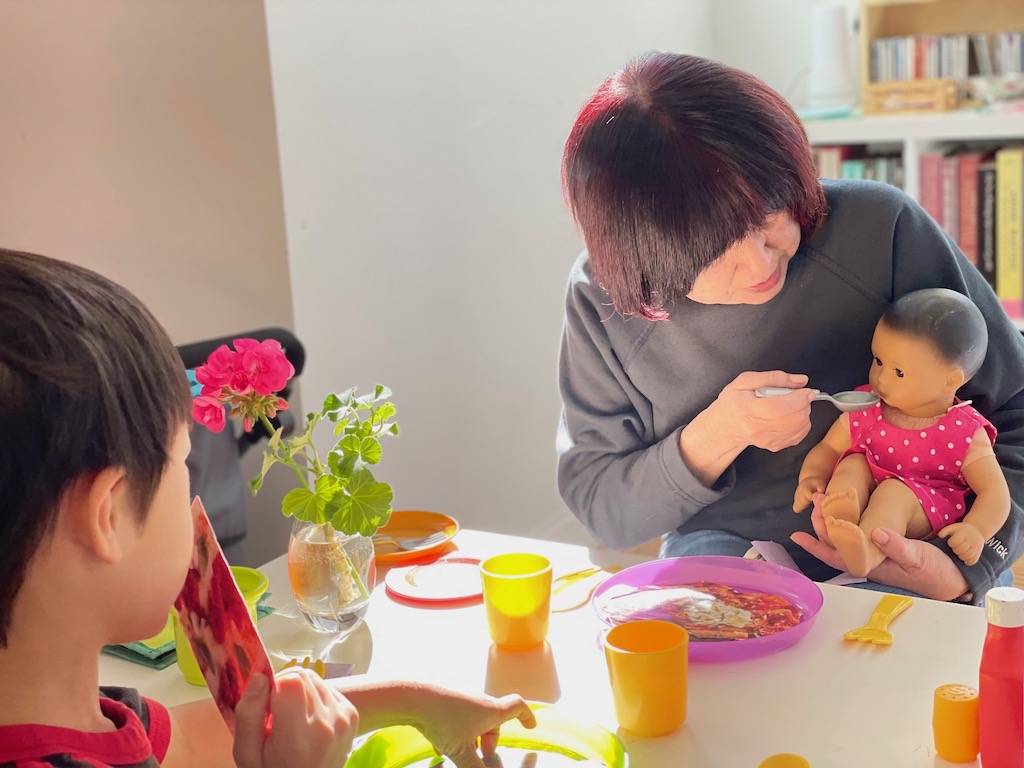
Since we aren’t learning percentages yet, guests should just leave a tip of a few dollars.
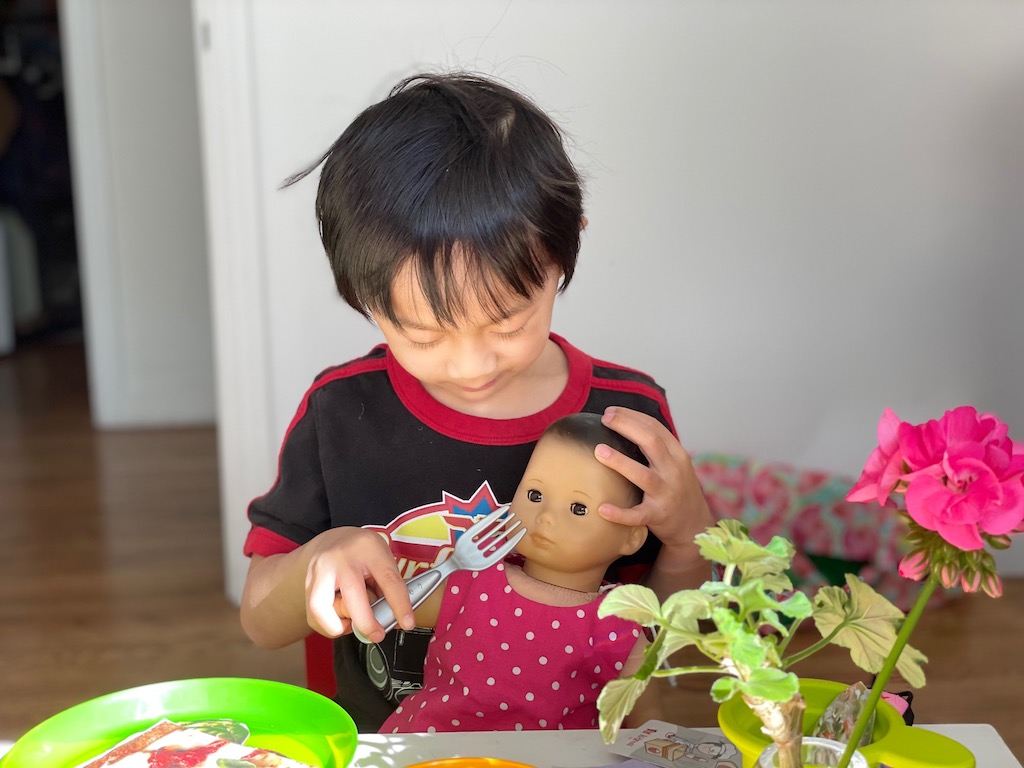
Then we redistribute the money and replay the game, switching roles.
Fancier Food Options
If you want a more realistic experience, you can buy play food. Melissa & Doug has a collection of all sorts of play food, including wooden food held together with velcro so you can “cut” them up with a wooden cleaver, felt food, and wooden grocery items.
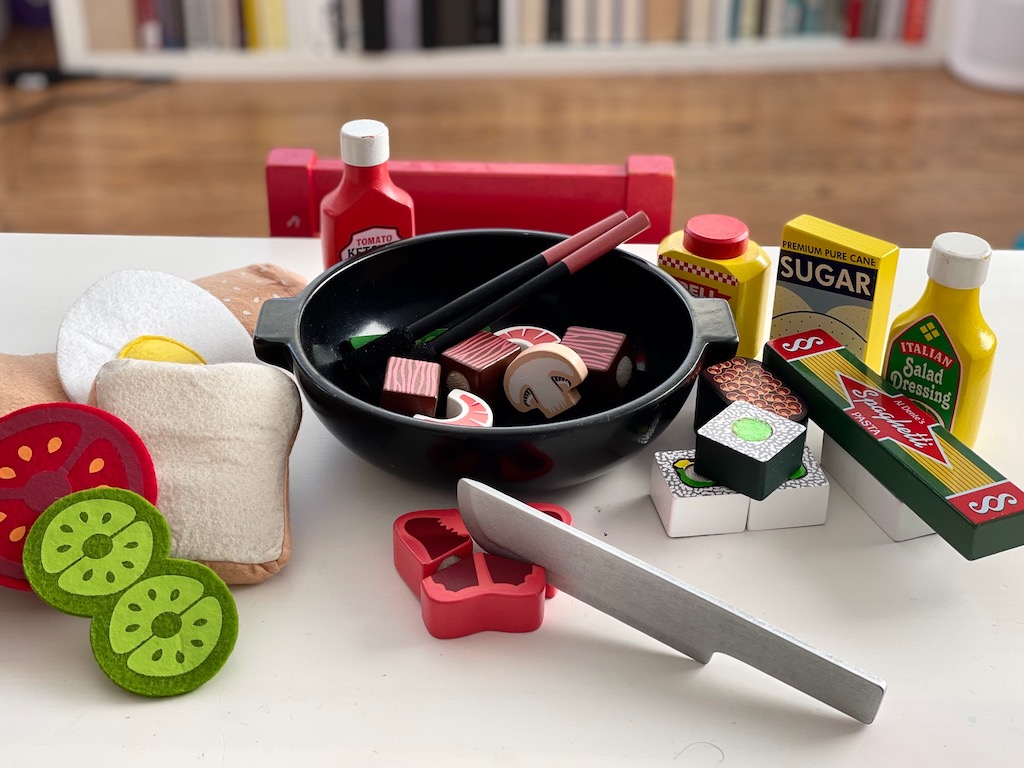
We have quite a number of food sets. Still, prefer the paper cut-out food for this game, since you can have a wider selection.
If you do purchase food sets, one word of advice: I used to keep them in their boxes: the stir-fry veg set with cleaver and velcro chopsticks, the felt sandwich set, the barbecue set; the sushi set. But the packaging took so much space I threw the boxes out. Mistake. Now all the sets are jumbled together in a food bin and it’s hard to sort them out for play.
An Added Bonus
With the pandemic, the children haven’t had as many opportunities to dine out for nearly two years. For a child of five, that’s almost half a lifetime.
So playing restaurant is a reminder of that activity, with hopefully, many more real-life dining out experiences ahead.
.
Don’t forget to sign up for my email newsletter. Every Wednesday, I’ll give you a new idea for an activity or insight to nurture the little ones in your life. Come visit!
